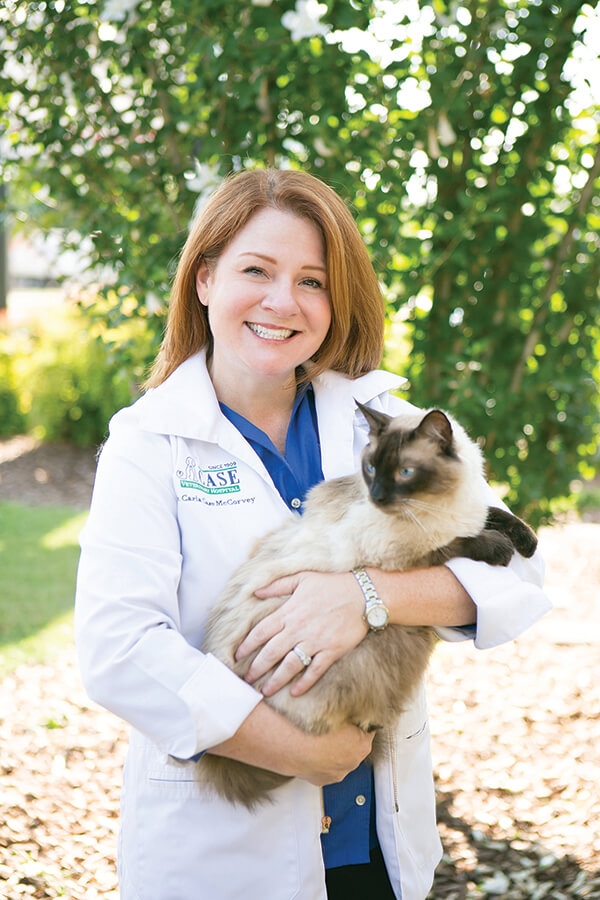 Cats are living longer lives thanks to advancements in veterinary care and nutrition. However, with age comes a higher risk of various health issues. Did you know that 30-40% of cats aged 10-14 years have kidney disease? This percentage jumps to 80% in cats aged 15 years or older. Additionally, a staggering 60-90% of cats over 8 years old show signs of arthritis, and 70% of cats over 2 years old suffer from dental diseases. These statistics highlight the need for regular veterinary care as cats age.
Cats are living longer lives thanks to advancements in veterinary care and nutrition. However, with age comes a higher risk of various health issues. Did you know that 30-40% of cats aged 10-14 years have kidney disease? This percentage jumps to 80% in cats aged 15 years or older. Additionally, a staggering 60-90% of cats over 8 years old show signs of arthritis, and 70% of cats over 2 years old suffer from dental diseases. These statistics highlight the need for regular veterinary care as cats age.
As our feline friends age gracefully into their golden years, their health needs evolve significantly. I'm Dr. Carla Case-McCorvey, and today, and I want to emphasize the vital importance of biannual veterinary examinations for mature cats.
How Old is a Mature Cat?
Generally, a cat is considered 'mature' or 'middle-aged' between the ages of 7 and 10 years. While they may still be active and energetic, subtle internal changes begin to occur during this stage. It's an important time for watchful observation as these changes can sometimes lead to health issues that are more common in older cats.
Once a cat reaches the age of 10, they are typically classified as 'senior.' This is a milestone in a cat's life, where age-related conditions become more prevalent. It's important to note that while age is indeed just a number, these classifications help us as veterinarians and pet owners tailor care to the specific life stage. Regular vet visits become even more vital as these assessments can catch early signs of conditions that commonly affect older cats, such as kidney disease, arthritis, and dental issues. As a responsible pet owner, understanding these life stages helps ensure that your feline friend receives the appropriate care for a happy and healthy life.
Cats Can Struggle Silently
One of the main challenges in feline healthcare is our cat’s natural tendency to hide signs of illness. While helpful in the wild, this instinct can mask early symptoms of diseases in our domesticated felines. Regular vet visits every six months for cats 8 years and older are essential to detect these hidden ailments early.
Case’s Cat Care
At Case Veterinary Hospital, we perform comprehensive examinations of your mature cat from every whisker to the tip of their tail. Starting from checking their eyes, ears, and mouth to their hind limbs, we assess for any discomfort or abnormalities. Our approach is thorough and empathetic, ensuring that we listen to your concerns and work collaboratively to determine the most appropriate diagnostic and treatment plans. We may discuss various tests such as bloodwork, urinalysis, and blood pressure measurements, all aimed at uncovering problems early for the best possible outcomes.
Expressing Concerns or Changes in Your Mature Cat
During your visit, it's important to inform us of any subtle changes you've noticed in your cat. Every detail you provide can be a critical piece of the puzzle in understanding your cat's health status. Keep notice and let us know if you notice things such as:
- Changes in behavior and sleeping patterns
- Increased vocalization
- Hesitating when jumping or going up and down stairs, difficulties getting in and out of high-rimmed litter boxes
- Decreased sight and hearing
- Decreased sense of smell and taste
- Weight loss and decreased muscle mass
- Changes in water and food intake
- Increased urine frequency and/or volume
- Constipation or changes in bowel movement activity
Diagnostic Testing at Case for Mature Cats
As our feline friends enter their golden years, staying ahead of potential health issues becomes increasingly important. Diagnostic tests are more than just routine check-ups; they are tools that help us as veterinarians paint a complete picture of a senior cat’s health status. Here's a closer look at the common tests and how they contribute to a comprehensive health assessment:
- Complete Blood Cell Count (CBC) and Chemistry Panel: These blood tests provide a wealth of information about your cat's overall health. A CBC can reveal signs of infection, inflammation, and anemia, while the chemistry panel offers insights into the functioning of vital organs such as the liver and kidneys. These tests are crucial for detecting underlying diseases that are common in older cats:
- Urinalysis: This test examines your cat's urine for signs of kidney disease, urinary tract infection, diabetes, and other conditions. Given that kidney issues are prevalent in senior cats, regular urinalysis helps in early detection and management of such diseases.
- Blood Pressure Measurements: Just like in humans, high blood pressure in cats can be a silent problem with serious consequences, including damage to organs like the heart, kidneys, and eyes. Regular blood pressure monitoring helps in detecting hypertension early, which is especially important since cats rarely show obvious symptoms until the condition is advanced.
- Thyroid Function Tests: Hyperthyroidism, a condition where the thyroid gland produces excess hormones, is common in older cats. Testing thyroid hormone levels helps in diagnosing this condition early, enabling timely intervention.
Case Veterinary Hospital Cares
As veterinarians, we are committed to ensuring that your feline companion enjoys a long, comfortable, and healthy life. We understand the special bond you share with your cat and are here to offer expert advice and care every step of the way. If you have any questions or concerns about your cat's well-being, please do not hesitate to reach out to us. Caring for your pet is not just our profession – it's our passion.
Remember, proactive and preventive care is the key to managing the health of your aging cat. Together, we can ensure that they enjoy their senior years with the quality of life they deserve. We look forward to being a part of your pet's healthcare journey and helping you and your kitty live your best lives together.
If you have questions and you'd like to reach out to us, you can call us directly at (912) 352-3081, or you can email us at info@casevet.com . Don't forget to follow us on social media Facebook, Instagram.

